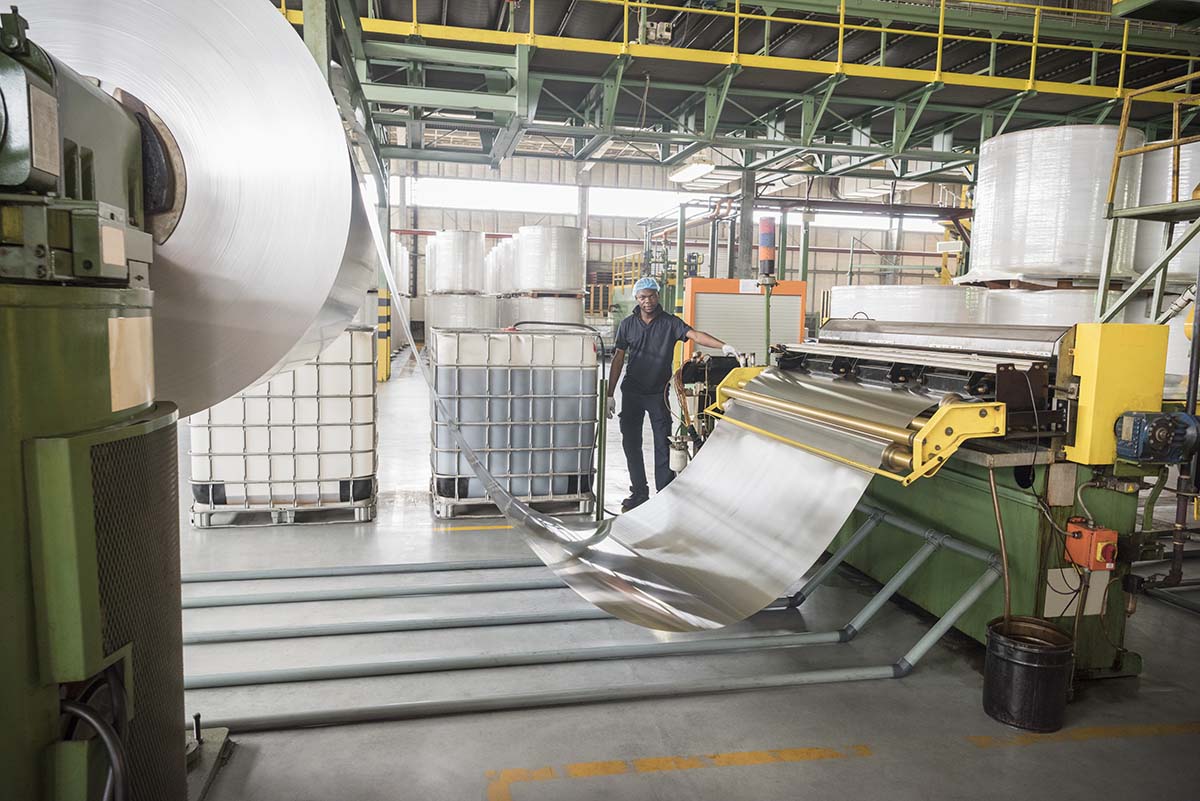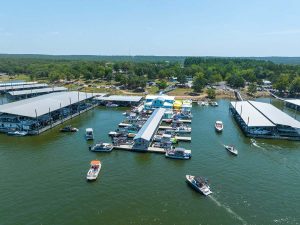
Paying the Price: How Tariffs on Steel and Aluminum Might Impact the U.S. Marina Industry
Published on April 1, 2025Marina owners know how to prepare for the unexpected. The cyclical nature of the industry requires owners and operators to anticipate and adapt to ups and downs. On March 12, President Donald J. Trump instituted 25% tariffs on all steel and aluminum imports. In response, the European Union (EU) announced retaliatory tariffs on $29 billion worth of U.S. goods, including American-made recreational boats. Canada also responded with retaliatory tariffs issued on $21 billion worth of U.S. imports but excluded boats from the list.
Impact on Industry
Historically, the marina industry has weathered financial storms. Some industry experts believe these recent economic policies might have an impact on the recreational boating industry, including boat builders and marinas.
According to Frank Hugelmeyer, president and CEO of the National Marine Manufacturers Association (NMMA), 95% of all boats sold in the United States are made in the United States. “Our member-company businesses are unique and represent the best of manufacturing in the United States. NMMA is seeking a fair-trade environment where marine manufacturers can equitably compete and grow markets both here and abroad,” he said. “However, in these uncertain times, the protection of American boat builders, component-makers and engine manufacturers is needed due to the risk of losing market access. A retaliatory tariff-free remedy needs to be the ultimate outcome for all sides.
As the administration works toward fair, reciprocal trade relationships, NMMA is seeking strong steps to prevent the looming Canadian and EU retaliatory tariffs from causing long-term harm.”

The marine industry relies heavily on materials like steel and aluminum for boat building and dock manufacturing. The day before the steel and aluminum tariffs went into effect, Hugelmeyer and Robyn Boerstling, senior vice president of government relations at NMMA, submitted comments to the United States Trade Representative (USTR), highlighting the impact of tariffs on manufacturing jobs and local economies. They addressed the effects of previous retaliatory tariffs in 2018, when the EU first imposed a 25% tariff on American-made boats. U.S. boat exports to the EU dropped 22% in one year, resulting in a $70 million loss in revenue for American manufacturers. At the same time, exports to the UK fell 41%, further compounding the economic damage.
Hugelmeyer and Boerstling commented that the reinstated tariffs are expected to increase production costs and disrupt supply chains. Additionally, the EU’s retaliatory tariffs will hinder market access for U.S.-manufactured recreational boats, adversely affecting American manufacturers, workers and small businesses within the industry.
Impact on Dock Builders
As marinas across the United States prepare for another boating season, Mick Webber, owner of Marine Development Inc. (MDI), sees the tariffs as another hurdle marina owners and operators and manufacturers will need to overcome. “The 25% tariff will have a negative impact on the marine industry overall including dock builders as most of the aluminum consumed in the United States is provided by the Canadian market,” Webber said. “Roughly half of all aluminum used in the United States is imported, and of that half, Canada is the largest supplier of steel and aluminum, accounting for 60% of U.S. aluminum imports.”
The United States consumes about 4.3 million metric tons of primary aluminum each year, with Canada providing roughly 2.7 million metric tons of that aluminum. Webber believes the tariffs will have a negative impact on aluminum pricing across the board, especially to the marine industry overall, and specifically to the aluminum dock builder markets. “There will be an instant tariff hit that will impact pricing, both to dock builders and manufacturers,” he said. “This will be equally absorbed by the dock building manufactures and consumers.”
Webber said it is important for dock builders like MDI to have a plan to mitigate material price increases. “At MDI, we have been trying to get out ahead of it by forecasting our consumption 15-18 months in advance and purchasing our provisions ahead of the tariffs that were imposed on March 12,” he said.
Impact on Marinas
Webber understands that a potential price increase for new docks is another concern marina owners and operators must now face. “This looming possibility is on top of several other key concerns facing marinas, such as significant increases in insurance costs, namely in property casualty, health insurance, increasing deductibles and all other ancillary costs relating to day-to-day operations of the business,” he said.
According to Webber, obtaining permits for construction projects at marinas is becoming more difficult and time consuming. “Permitting for “new start” or expansions by local or regional governing bodies have been imposed, seemingly, like never before,” he said. “As a result, we’ve seen permitting being delayed up to 18 – 24 months.”
Webber added that this is a relatively new trend for the industry (over the last couple of years). But these factors, along with issues including high interest rates and the ability to maintain a strong workforce, are all areas of concern for the industry.
As operating expenses continue to rise, Webber said there are steps marina owners can take to minimize costs and remain profitable. “Cost minimization and profitability strategies can include conducting a deep dive audit on insurance coverage. Look at whether proper coverages are in place and adjust accordingly,” he said. “Continue to strive to maintain a strong base of happy and repeat customers by providing a strong consumer experience and challenge oneself to find efficiencies in the operational side of the business.
For those marinas considering dock upgrades or infrastructure updates, Webber doesn’t believe delaying a potential project due to the consensus of the tariff would be advantageous to marina owners. “Watchers believe these will be short lived relating to aluminum with Canada,” he said. “My recommendation is don’t delay, as it is likely that manufacturers will not push out the full cost of the tariffs.”
| Categories | |
| Tags |






